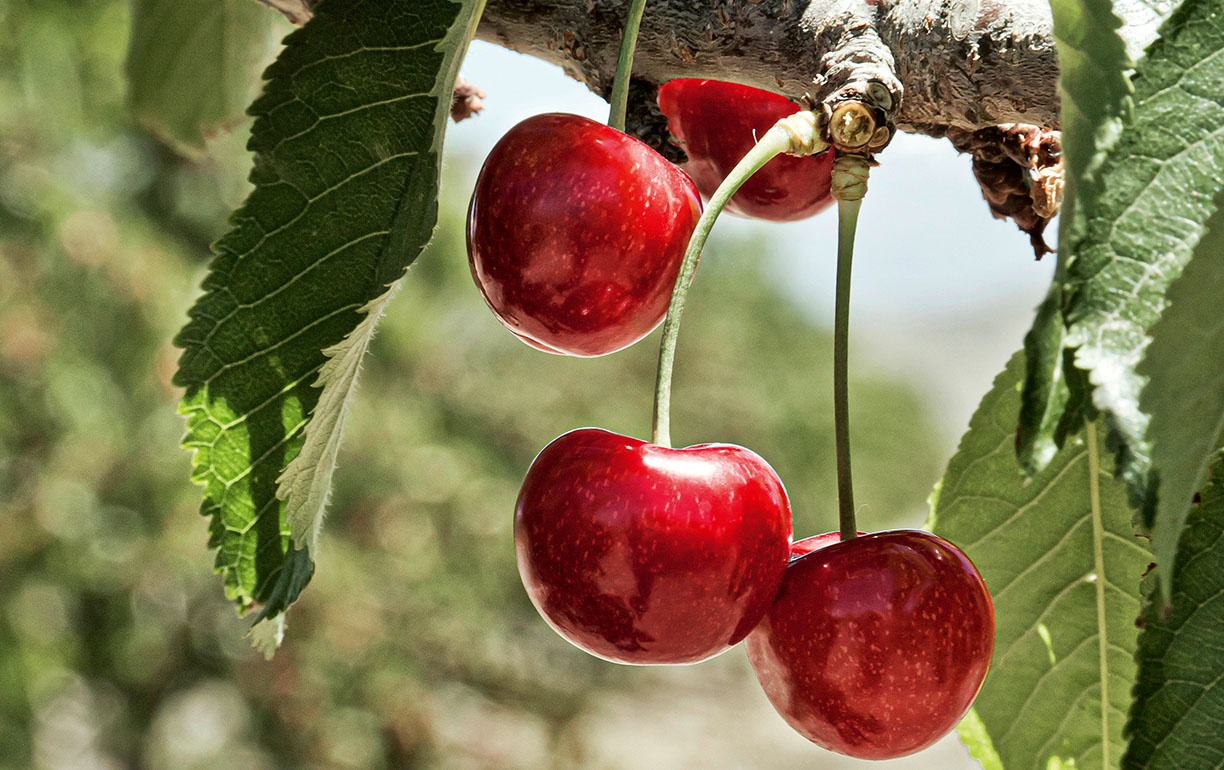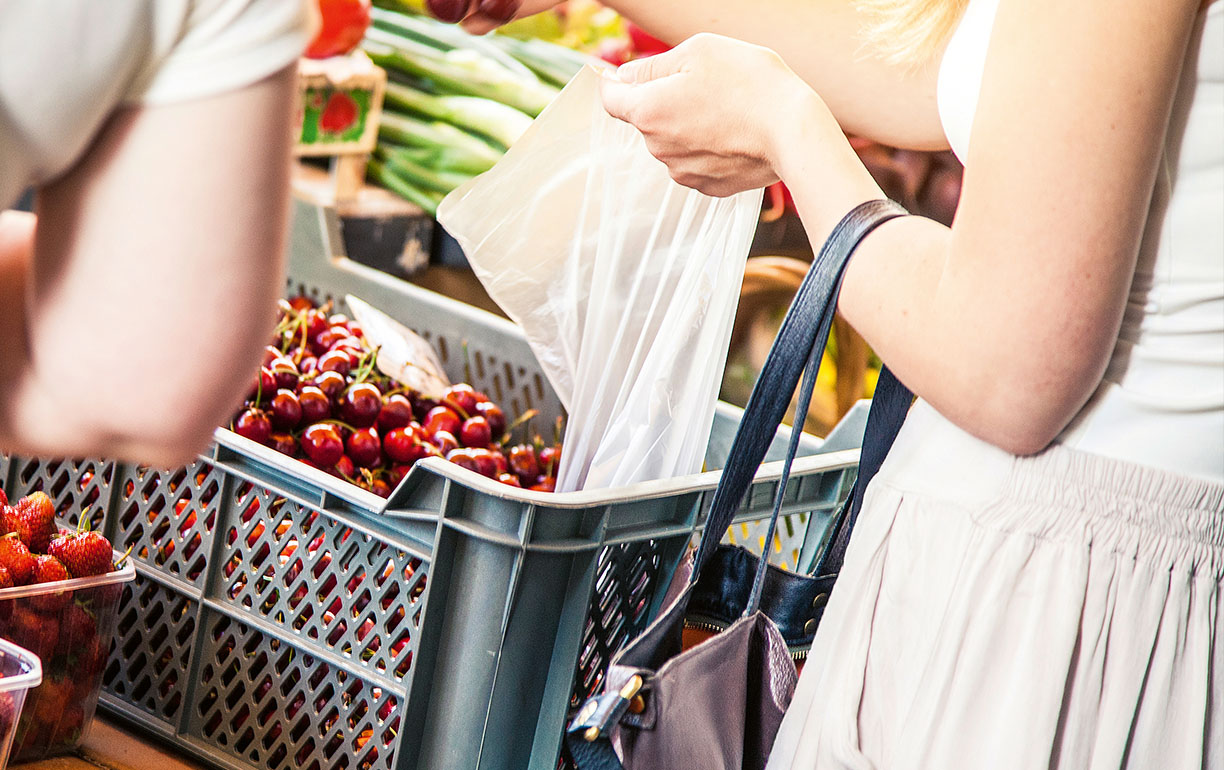
Organic.
Anyone with a cherry tree in their garden that will yield a bucket or two of cherries every year can count their blessings. After all, recreational gardeners growing cherries merely for their own consumption can usually get by without the use of pesticides. They harvest the cherries as soon as they are ripe. And they accept that some of the fruit will not quite match the images in the advertising materials put out by the grocery store. On supermarket shelves, however, organic cherries are still hard to find. Whereas other types of organic fruit, such as apples, have long been an established part of the product range, the consumers’ search for organic cherries will often be in vain. Cherries are susceptible to pests and fungi, and if it rains too much, they will absorb water until they burst. In Central and Northern Europe, biologically and ecologically sound cultivation therefore involves high costs and is still the exception. By contrast, Copefrut Chile S.A., with their home base in the geographical center of Chile, has boldly set out to do just that in a project that has been running for two years now. The cooperative is an alliance of several Chilean fruit growers and is located in the Région del Maule, where everything revolves around agriculture. Its Mediterranean climate with hot days and cool nights makes the region perfectly suited to crop cultivation. Copefrut lets the organic cherries ripen on a spread covering about 50 hectares – free of pesticides and certified. The company is one of Chile’s fruit-growing giants.

Cherries grown in this Andean country are popular all over the world. In the 2017/2018 season Chile exported some 170,000 tons. China, where the fruit is marketed in time for New Year’s Eve, purchased 94 percent of cherries exported. Copefrut alone exported 25,000 tons. A respectable 250 tons of these were organically grown. Sustainability has long played a pivotal role in Copefrut’s corporate culture. Working closely with universities and food industry giants, the cooperative is determined to become even more sustainable in the future. For example, the farms are increasingly moving over to environmentally friendly packaging solutions. It is one of the characteristics of cherries that once picked, they will not continue to ripen. While most cherries are chilled and exported using sea freight, the organic varieties Royal Dawn, Santina, Bing, Lapins, Kordia, Sweetheart and Regina leave the country by air. The cherries are driven 200 kilometers north to the airport of Santiago de Chile (SCL) in refrigerated trucks. For the most recent harvest, Lufthansa Cargo arranged for transport runs to Frankfurt, Moscow, Bangkok and Shanghai. UPS first flew the cherries to Buenos Aires on a Boeing 767 freighter, and from there Lufthansa Cargo took care of onward transportation to Frankfurt (FRA) using a Boeing 777F. The flight time for the 11,500-kilometer route from Argentina to Germany was 13 hours and 25 minutes.
